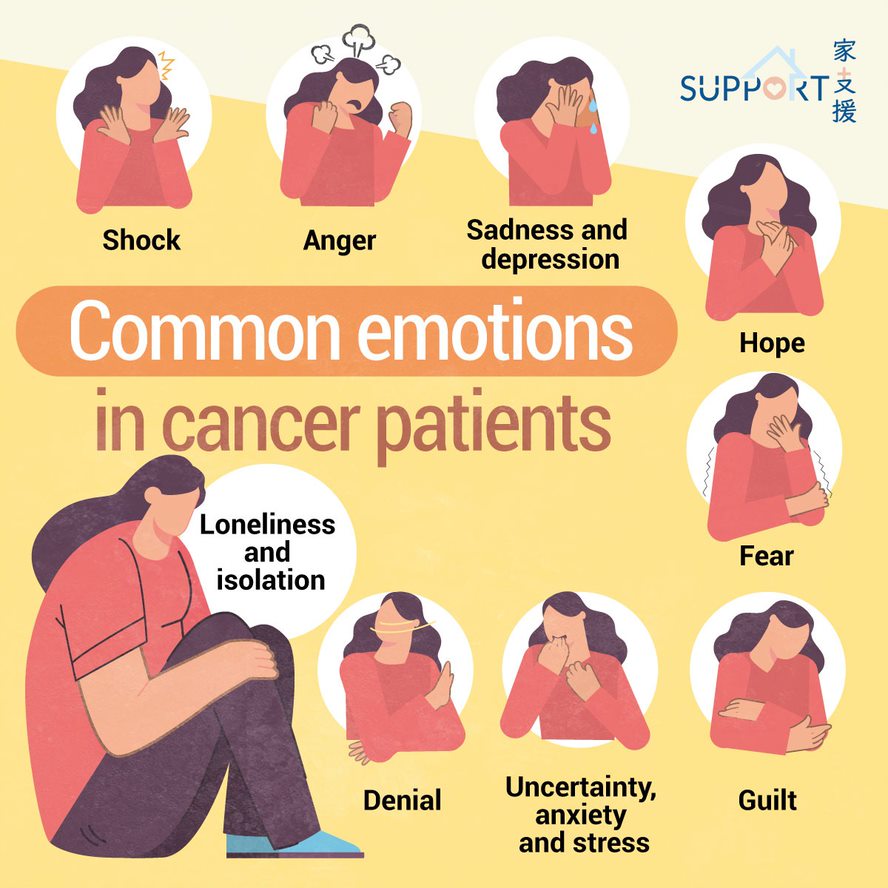- Home
- About SUPPORT+
-
Equip YourselfI've just been told I have cancer...Lung Cancer Colorectal Cancer Breast Cancer Prostate Cancer Liver Cancer Stomach Cancer Uterine Cancer Skin Cancer Thyroid Cancer Lymphoma Pancreatic Cancer Oesophageal Cancer Nasopharyngeal Carcinoma Cervical Cancer Ovarian Cancer Kidney Cancer Gastrointestinal Stromal Tumours (GIST) Bladder Cancer Brain Metastasis Bone Metastasis Intestinal Obstruction Malignant Spinal Cord Compression Adolescents and Young Adults with Cancer Older People with Cancer
- Contact Us


